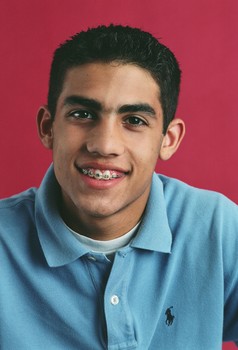 |
|
People today have very busy schedules. It is a very convenient and a time saving service to be seen in your own home or office. Being seen in your own environment allows you to practice your newly learned skills where you will be using them and in this way helps with carry-over. In addition, services offered in your own home allow for privacy. I believe the quality of the therapy is better and more personalized. Contact me to schedule an appointment...
|
|
 |
|
|
Locations Served | Accent Reduction | Speech Therapy in Schools
| Children | Autism | Orofacial Myology
Orofacial Myofunctional Therapy
For Parents to Share and Discuss with Their Orthodontist, Dentist, Ear-Nose-Throat Specialist, Allergist and Physician
 Orofacial Myofunctional Therapy is a series of specialized exercises for the mouth and face which can eliminate or greatly reduce a variety of problems such as: Orofacial Myofunctional Therapy is a series of specialized exercises for the mouth and face which can eliminate or greatly reduce a variety of problems such as:
• Thumb/Finger Sucking
• Tongue Thrust
• Food Chewing Problems
• Inappropriate biting of Lips, Cheeks and Other Objects
• Poor Orofacial Muscle Control and Coordination
• Abnormal Tongue Resting Posture
• Open-Lips Resting Posture
Children who suck their thumbs beyond age four are engaged in a habit that can cause a great deal of damage. Between the ages of 4 and prior to the eruption of the permanent teeth, much of the damage that occurs to the palatal structure can be reversed. The longer the sucking habit continues, the greater the chance of the negative effects of finger sucking such as palatal narrowing, becoming resistant to spontaneous reversal.
Prolonged and vigorous sucking can act as a deterrent to the normal growth and development of skeletal, facial nasal cavity, tooth alignment, lip structure, tooth eruption, palate, finger growth, speech, breathing and swallowing functions.
If an orofacial muscular imbalance or retained infantile swallow/tongue thrust is detected during visits to the office, muscular therapy sessions can be initiated once the digit sucking habit is under control. If the tongue thrust is allergy or airway related, a properly maintained airway is established through therapy.
Children who breathe habitually through the mouth, due to allergies, tonsils, adenoids, or other airway difficulties also tend to hold and rest the tongue and jaw downward, yielding similar narrow palates, resultant bite changes, tongue thrust behavior, and lips apart posture. Mouth breathing may produce untoned or hypotonic lips. The upper lip may appear short and elevated from over the upper teeth while the lower lip may appear droopy, puffy and dry. If spontaneous closure of the lips does not occur and if there appears to be minimal or no actual nasal airway problems it is advisable to have the child evaluated by a speech pathologist with knowledge of orofacial myology.
Enlarged tonsils and adenoids may also block airways, creating an open-mouth breathing pattern. An open-mouth breathing pattern, or the appearance of an open-mouth breathing pattern, can become habitual and continue even after successful medical treatment of the airway blockage.
If tongue thrust therapy is recommended by the orthodontist, ENT or other specialist, visits are coordinated to work together with therapy for the best possible comprehensive outcome. This therapy consists of various individualized exercises designed to retrain, improve, and correct muscle pattern usage. It also addresses open lips and mouth posture. This therapy requires active participation and cooperation on the part of the child, adolescent or adult.
When orofacial myofunctional disorders are present they tend to undermine the work the orthodontist is trying to achieve. A tongue which exerts steady constant pressure on teeth during swallows and rest, or lips that do not seal with a jaw that postures habitually open; will not readily provide the proper environment functionally to best retain recently moved teeth in their new position. In addition, orthodontia in progress will take longer, as the orthodontist battles the tongue posturing itself and exerting continuous pressure in the opposite direction the teeth are attempting to be moved. A tongue thrust which has not been corrected during orthodontia is believed by many researchers to be the number one cause of orthodontic relapse in patients who have had orthodontic work.
Some children develop sound errors (misarticulation) as a result of oral myofunctional disorder. The sounds that are affected most frequently are: s, z, sh, zh ch, and j. The production of the sounds t, d, n may also be misarticulated because of weak tongue tip muscles. Sometimes speech may not be affected at all.
[ Top of Page ]
|
|

|
|
|
[an error occurred while processing this directive]
|
|
|

